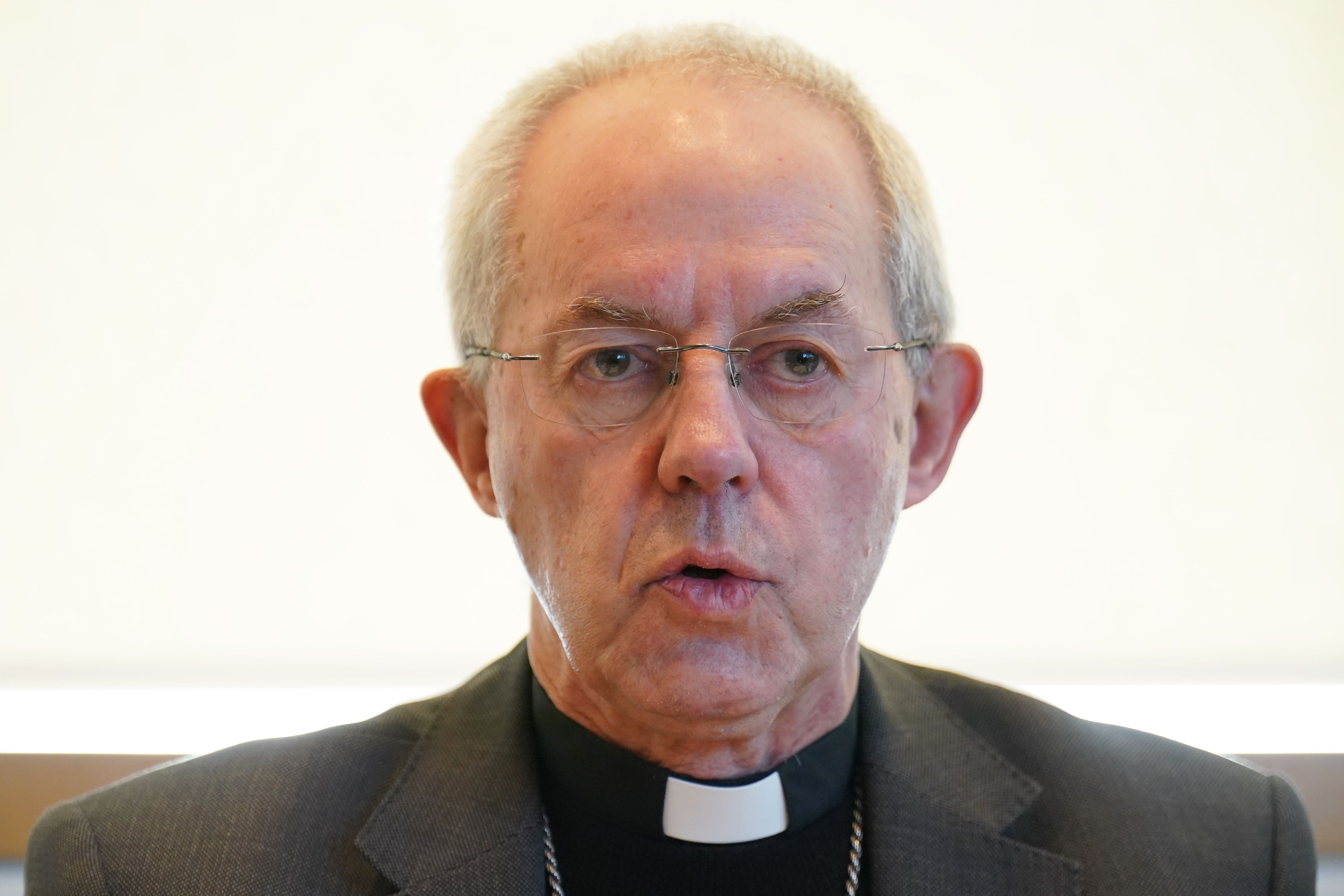Broken social care system ‘cannot be tweaked’, warns Archbishop of Canterbury
Justin Welby made his comments as the Government is expected to publish an adult social care reform plan.

Your support helps us to tell the story
From reproductive rights to climate change to Big Tech, The Independent is on the ground when the story is developing. Whether it's investigating the financials of Elon Musk's pro-Trump PAC or producing our latest documentary, 'The A Word', which shines a light on the American women fighting for reproductive rights, we know how important it is to parse out the facts from the messaging.
At such a critical moment in US history, we need reporters on the ground. Your donation allows us to keep sending journalists to speak to both sides of the story.
The Independent is trusted by Americans across the entire political spectrum. And unlike many other quality news outlets, we choose not to lock Americans out of our reporting and analysis with paywalls. We believe quality journalism should be available to everyone, paid for by those who can afford it.
Your support makes all the difference.The country’s social care system is broken and “cannot be tweaked”, the Archbishop of Canterbury has told Parliament as he stressed the need for a fundamental rethink.
While funding mattered, using it as a starting point would mean failure, the Most Rev Justin Welby warned.
The senior church leader made his comments as the Government is expected to publish an adult social care reform plan.
Social care shortages have fuelled the problem of bed-blocking in hospitals, leading to long ambulance queues and delays reaching 999 patients.
The Government has also faced criticism for the decision to push back long-promised social care charging changes to October 2025.
It cannot be tweaked. It needs reimagining
These included an £86,000 cap on personal care cost contributions and an expanded means test that was more generous than the existing one, which had been due to come into effect from October 2023.
Earlier this year, church leaders called for a “radical redesign” of England’s “broken” social care system.
A so-called National Care Covenant, setting out the rights and responsibilities of national and local government, communities, families and citizens should be established, the Archbishops’ Commission on Reimagining Care said.
Criticising the “indifference” shown by the Government to the report, the Archbishop said: “In common with almost every political, religious or social belief, we think that the current care system is broken.
“It cannot be tweaked. It needs reimagining.”
He added: “Every part of society is needed to be involved in care.
“We need an understanding that care and support is not an end itself, but the means by which every person can begin to fulfil their potential as it varies through life as human beings.”
Mr Welby went on: “Funding matters. If it is our starting point we will fail.
“Once we know what kind of care system we are aiming for then we can begin see how it could progressively be paid for.
“Much as I admire the Treasury, if we start with them we are pragmatic, but we are unlikely to be imaginative.
“The revolutionary value which would be at the heart of our social care system is interdependence.
“Interdependence takes us away from a narrow argument about who should provide care and instead says that responsibility lies with all of us to different degrees.”
Referring to the numerous reports and inquiries into social care over the last 25 years, Tory former education secretary Baroness Shephard, said: “We should ask ourselves why it is that a sector so vital to one in five of our population at any one time, to the overall health of the nation and to the functioning of the NHS has been so overstudied and, as we found, so underresolved over such a long period.
“It is mostly, I suggest, because it has ‘just grown’, and is now highly and almost unmanageably complex.”
The effect on the NHS of neglecting social care must also be tackled
Highlighting problems with funding, commissioning and provision, Lady Shephard, who is a member of the Lords Adult Social Care Committee, said: “The effect of all this on those needing social care, almost always urgently, is that they face a lack of comprehensible information even to get into the system.
“They then find, all too frequently, a shortage of provision, delays, confusion and unclear accountability.”
She added: “The effect on the NHS of neglecting social care must also be tackled. We all know the NHS is experiencing unprecedented problems, some resulting from the pandemic, of growing demand and staffing and funding difficulties.
“How acceptable is it that every single day 10% of hospital beds are occupied by patients who do not need them but cannot be discharged because social care is not available, and that preventative social care is not available to avert many hospital admissions in the first place?
“The NHS has got to be fixed, but it cannot be fixed without first fixing social care.”
Responding, Tory health minister Lord Markham pointed to the £7.5 billion of funding being provided over the next two years to support social care services.
He said: “But this is only the start of the journey. We are moving in the right direction.”